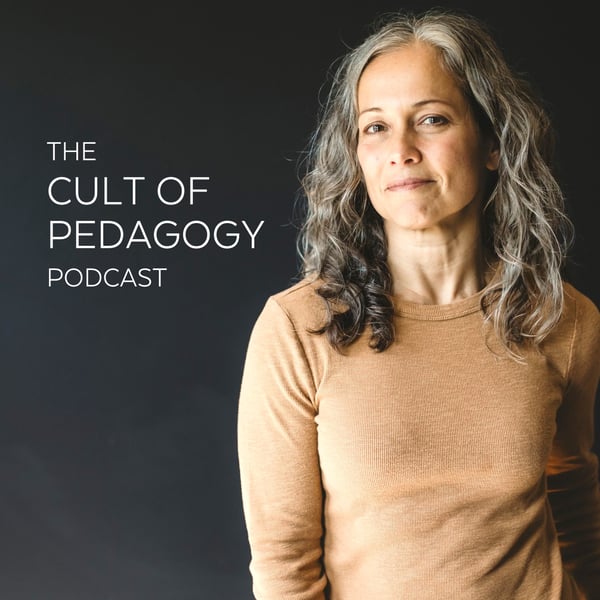209: Unpacking Trauma-Informed Teaching
The Cult of Pedagogy Podcast
Jennifer Gonzalez
4.8 • 2.4K Ratings
🗓️ 18 April 2023
⏱️ 44 minutes
🧾️ Download transcript
Summary
Trauma-informed teaching has gotten a lot of attention in recent years, and my guest, Alex Shevrin Venet, is a wonderful guide to help us better understand how it works. Her book, Equity-Centered Trauma-Informed Education, offers a holistic, nuanced exploration of what this work looks like in practice, and it does so with equity at the center. In this episode, we talk about what trauma-informed teaching looks like in practice, how some approaches to this work miss the mark, and how teachers can start applying some basic principles of good trauma-informed teaching right away.
Thanks to EVERFI and Giant Steps for sponsoring this episode.
Read a summary of this interview and a full transcript at cultofpedagogy.com/trauma-informed-education.
Transcript
Click on a timestamp to play from that location
| 0:00.0 | This is Jennifer Gonzalez welcoming you to episode 209 of the Cult of Pedagogy Podcast. |
| 0:05.6 | In this episode we are going to unpack the approach to building learning environments |
| 0:10.2 | known as trauma informed teaching. |
| 0:24.2 | My understanding of the word trauma has evolved over the last few years. |
| 0:29.2 | It used to be limited to incidents that were objectively harmful and almost always severe. |
| 0:35.2 | Events that involve some kind of violence, like experiencing or directly witnessing a physical |
| 0:40.8 | assault or a tragedy of some sort, a natural disaster, a vehicle collision, something that caused |
| 0:48.2 | destruction or bodily harm. While these things still sit squarely under the trauma umbrella, |
| 0:55.4 | that umbrella has expanded to include lots of other experiences that can have negative and |
| 1:00.8 | long-lasting impact, things like neglect, emotional abuse, and harassment. While some lives are |
| 1:08.2 | much more trauma-heavy than others, every life contains some degree of trauma and it affects |
| 1:14.3 | each of us differently. In fact, it is the way we process and experience certain events that |
| 1:20.3 | defines how traumatic they are. Two people may process the same episode quite differently, |
| 1:26.6 | making it a traumatic event for one but a minor blip on the radar for another. |
| 1:32.0 | This broader definition does not water down the concept of trauma. It makes it universal, |
| 1:38.4 | and this means it will show up for many if not all of our students and for ourselves. |
| 1:44.1 | Making educational decisions with a sensitivity toward trauma, commonly referred to as trauma-informed |
| 1:51.2 | education or teaching, has gotten more attention in recent years, and there's a long list of reasons |
| 1:57.3 | why, including the rise of childhood depression and anxiety, pandemic-related stressors, |
| 2:03.8 | economic struggles, and a constant threat of gun violence to name just a few. |
| 2:09.2 | I have wanted to do an episode on this topic for a while, and I've found someone pretty |
| 2:13.4 | incredible to help me do that. My guest today, Alex Sheverin-Vinette, is someone whose work has |
... |
Please login to see the full transcript.
Disclaimer: The podcast and artwork embedded on this page are from Jennifer Gonzalez, and are the property of its owner and not affiliated with or endorsed by Tapesearch.
Generated transcripts are the property of Jennifer Gonzalez and are distributed freely under the Fair Use doctrine. Transcripts generated by Tapesearch are not guaranteed to be accurate.
Copyright © Tapesearch 2025.

